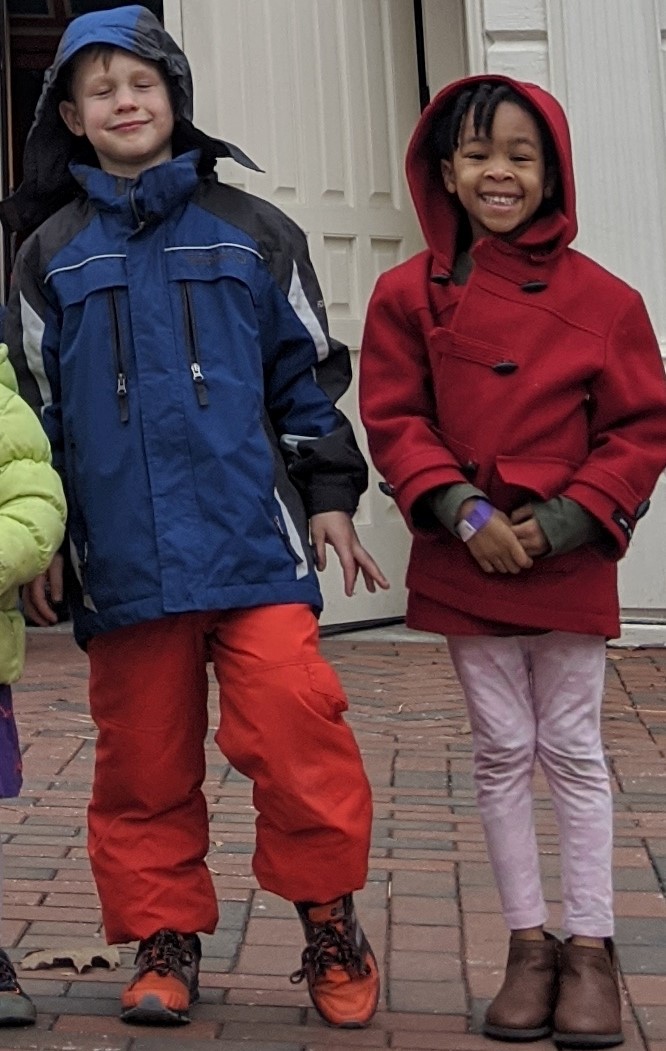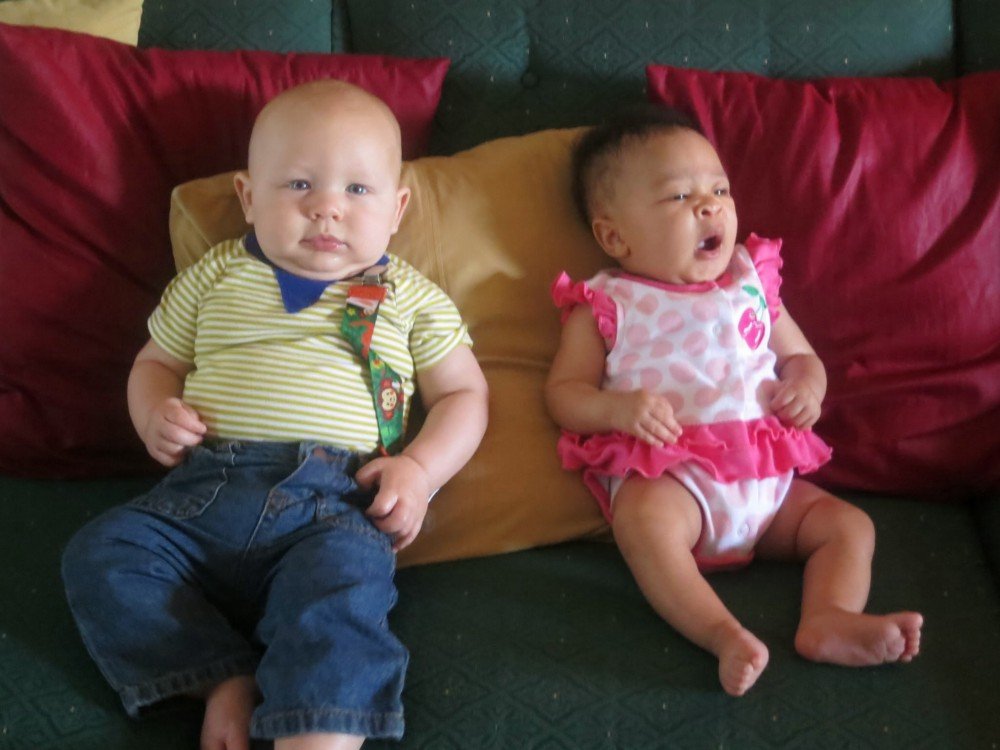Opinion
Gretchen Osodipe On “What In Particular Would You Like White Parents To Say To Their Kids?”

When I was a child, my parents used to refer to certain conversations as “grown-folks business,” when they thought the topic of discussion was too mature for me. But, we talked about issues like oppression, racism and police brutality. My parents realized that my innocence and hard conversations were not mutually exclusive. Issues like oppression, racism, and police brutality, are not outright “grown-folks business,” rather realities that negatively affect everyone and would increasingly affect me if they remained silent.
We had conversations not just because we were black, but because my parents saw discussing hard issues as key opportunities to teach me to think, discern right from wrong, and take action. Their model impacts how I talk to my children and how I carry myself in the world. Their model also impacted reflections I shared with a friend of mine the other day as we exchanged texts about the recent deaths of George Floyd, Ahmaud Arbery, and Breonna Taylor and the subsequent protests and unrest.
“Is there something in particular you wish your white friends were telling their kids about the current events?”

This was the question a white friend of mine asked me after some back and forth about how our families were processing these last few weeks. Her question expressed humility and vulnerability, which I appreciated. And her question was part of the soul-searching and research she had been doing to figure out her call to action concerning teaching her children about racism, inequities, privilege, and socially- just action. Through our conversation it became more clear to her that:
1) talking to her children about race and current events was a moral imperative. She concluded, “remaining silent, for fear of saying the wrong thing, is in and of itself the wrong thing.”
2) she wanted her actions to better reflect her values and beliefs and,
3) her actions and inaction were shaping her children in ways that could be either consistent and maybe inconsistent with her beliefs.
This is what I told her:
First, I would like my white friends to prioritize having ongoing conversations about race, equity, and agency with their children. Children are not just growing up to be citizens, children are citizens now. This means they can contribute to making the world better now. Children have ideas we need to hear, learn from, and sometimes correct. Therefore, our children need to practice and be supported in thinking, asking questions, and engaging in important issues and ideas in developmentally appropriate ways. The reality is, children will make meaning of the world around them, with or without our help and sometimes in spite of us. They make meaning from the things we say and the things we don’t say. They trace patterns across the things we do and the things we don’t do. They come to understandings by looking at the people with whom we spend time (or do Zoom calls) and those we don’t. We can be intentional about talking to them or leave them to piece things together for themselves, sometimes with misinformation, to the detriment of us all.
Prioritizing ongoing conversations about race, equity, and agency can look lots of different ways. And it’s not about perfect answers, but about an openness to making your beliefs and ideas visible to yourself and your child while growing along with them. For example, while reading Snowy Day, by Ezra Jack Keats, my friend could call specific attention to Peter’s skin with her 3-year-old. She could say, “I love how his beautiful brown skin looks against that bright red jumpsuit. I know exactly how his mom felt getting him ready to play in the snow. Bundling your child up in a snowsuit is like wrapping a special (and often wiggly) present!” At this point a parent has just stated their beliefs, but a next step is to be ready for an exchange, a conversation. Her child might ask, “Why are you calling his brown skin beautiful? Does that mean I don’t have beautiful skin? I wish my skin was brown.” Her child also might say, “I’m glad my skin is not brown like that.” Who knows what they will say but listening and engaging is what matters here.
In an attempt to make my beliefs and ideas more concrete for myself, my four-year-old, and my six-year-old over the years, here are some things I’ve said while in conversations with them:
- “I’m calling his skin beautiful because I noticed it and I appreciate it. When I see beautiful things, I want to speak on it. Why did you ask?”
- “I’m calling it beautiful because that’s what I believe. I have seen a lot of situations where black people and people of color’s beauty isn’t celebrated or recognized- and I want to make sure I don’t do that. What do you think about that?”
- “To your question about you having beautiful skin- yes, I love your skin. And someone else being beautiful doesn’t take away from your beauty. Can you tell me people that you love? Loving that one person doesn’t mean you love the other less. You have plenty of love to go around.”
- “Hmm, tell me more about wanting a different skin color or being glad your skin doesn’t look a certain way.”
Second, I want my white friends to tell their children (in a way that is developmentally appropriate) that lots of people around the world are hurting, frustrated, scared, and concerned because Black people are losing their lives because others do not value them as human beings.

I want my friends to underscore the humanity of George Floyd, Ahmaud Arbery, Breonna Taylor and countless others, who have been victims of racism and police brutality.
Yes they were beautiful black people, and they were fathers, sons, daughters — people with vibrant lives that were taken because other people didn’t do the right thing.
Third, I want my white friends to teach their children to feel agency and responsibility to be anti-racist. I want my friends to talk about and model what anti-racism looks, feels, and sounds like for their children and commit to the journey of being anti-racist together. I want them to help their children imagine working for social justice and not be a bystander. This means having conversations that center on responses to inequity and help children design the more equitable future we want to see. What ideas do their children have for preventing bad things from happening in the first place? What small moves and big ideas do they have towards advancing equity?
In her book, Why Are All the Black Kids Sitting Together in the Cafeteria? and other Conversations about Race, Dr. Beverly Tatum guides readers to think about racism as a sort of “smog.” We are all breathing it and it is hurting us all. As parents and caring adults, we have to understand that none of our children will thrive as long as we are all breathing smog. Discussion drives changes in mindsets and personal beliefs. And those changes are the first steps to clearing the smog, allowing us all to breathe better now and our children to create a better world.
Gretchen Osodipe is a Connecticut-based educator, consultant and mother of three. @GOsodipe








Pingback: ปั่นสล็อตฟรี ตลอด 24 ชั่วโมง ได้ที่ LSM99
Pingback: Dnabet รวมลอตเตอรี่ และ หวยใต้ดิน
Pingback: Crumpets disposable
Pingback: ไก่ตัน
Pingback: fake info
Pingback: จำหน่ายอะไหล่อุตสาหกรรม
Pingback: ธุรกิจงานศพ
Pingback: Ulthera
Pingback: altogel
Pingback: แทงบอล LSM99
Pingback: my profile
Pingback: บุหรี่นอก
Pingback: Brians Club
Pingback: https://www.fapjunk.com
Pingback: สล็อตเกาหลี
Pingback: aviator-kazakhstan.easy-shop.kz
Pingback: วิเคราะห์บอลวันนี้